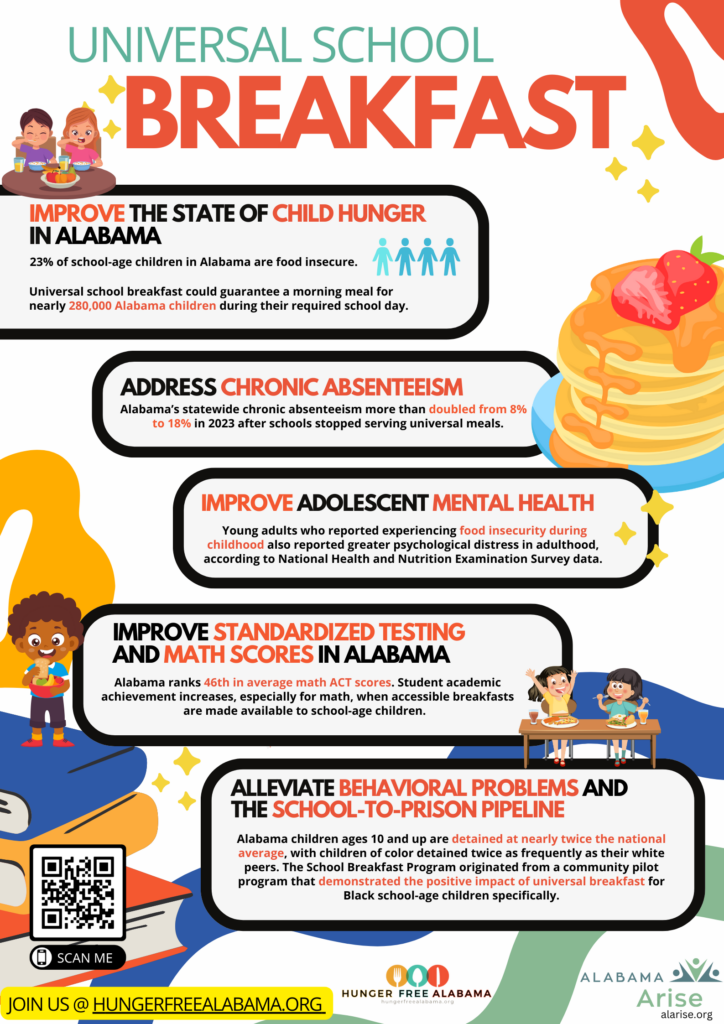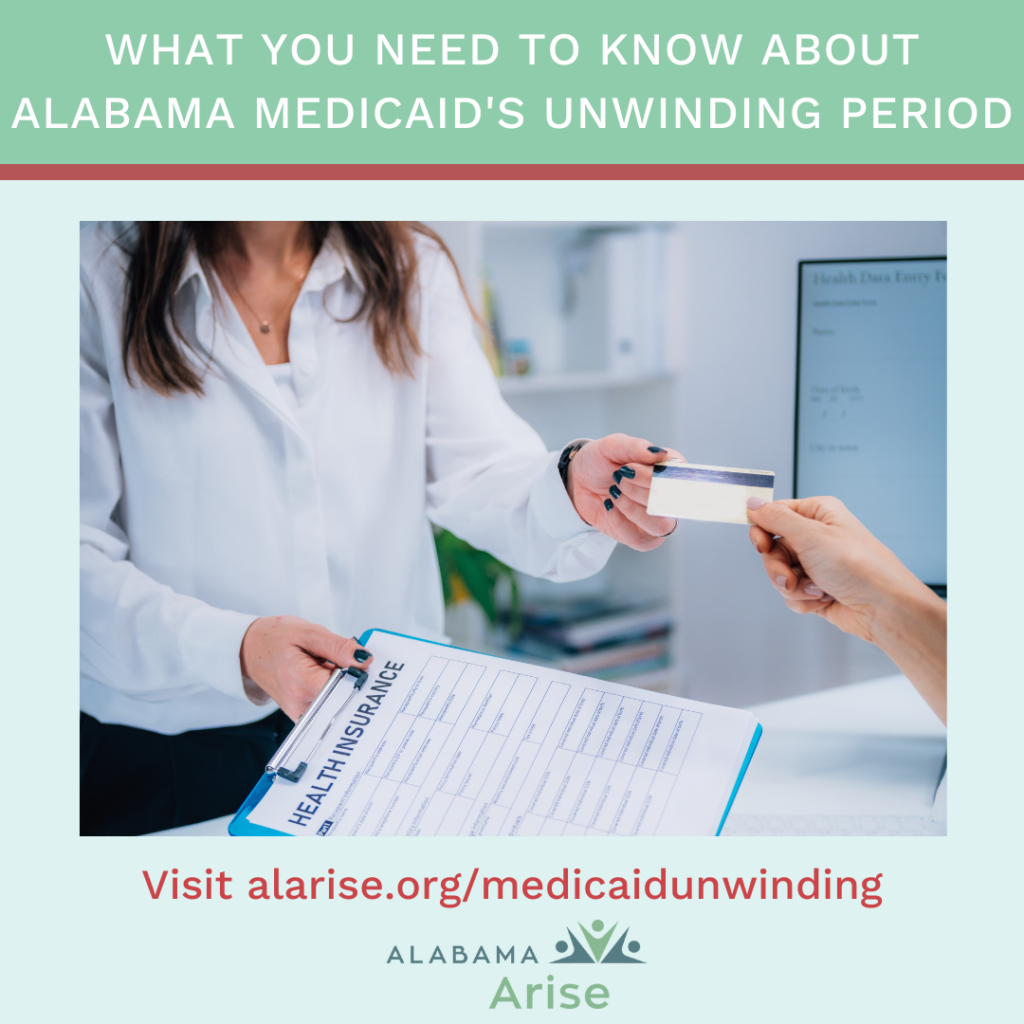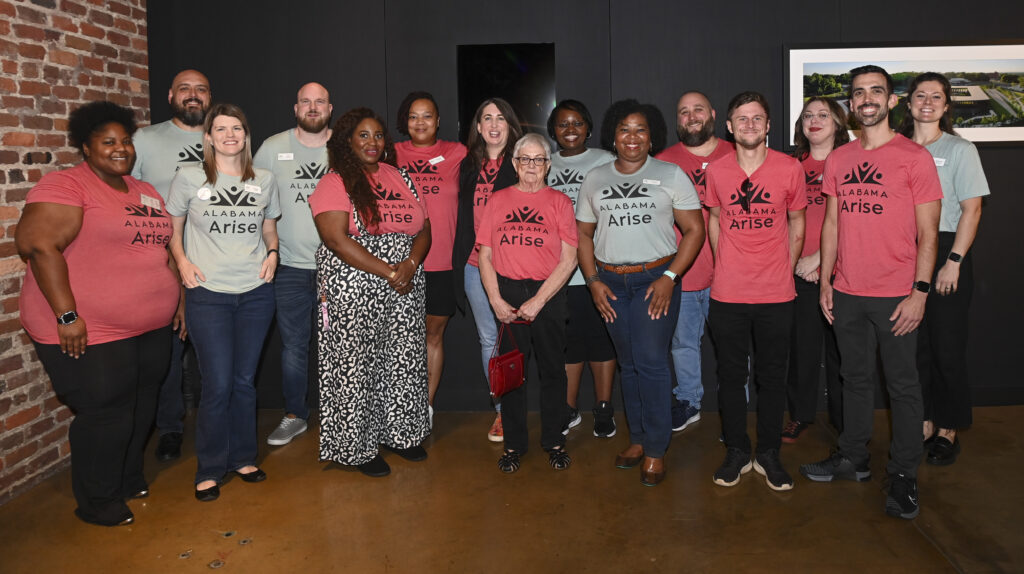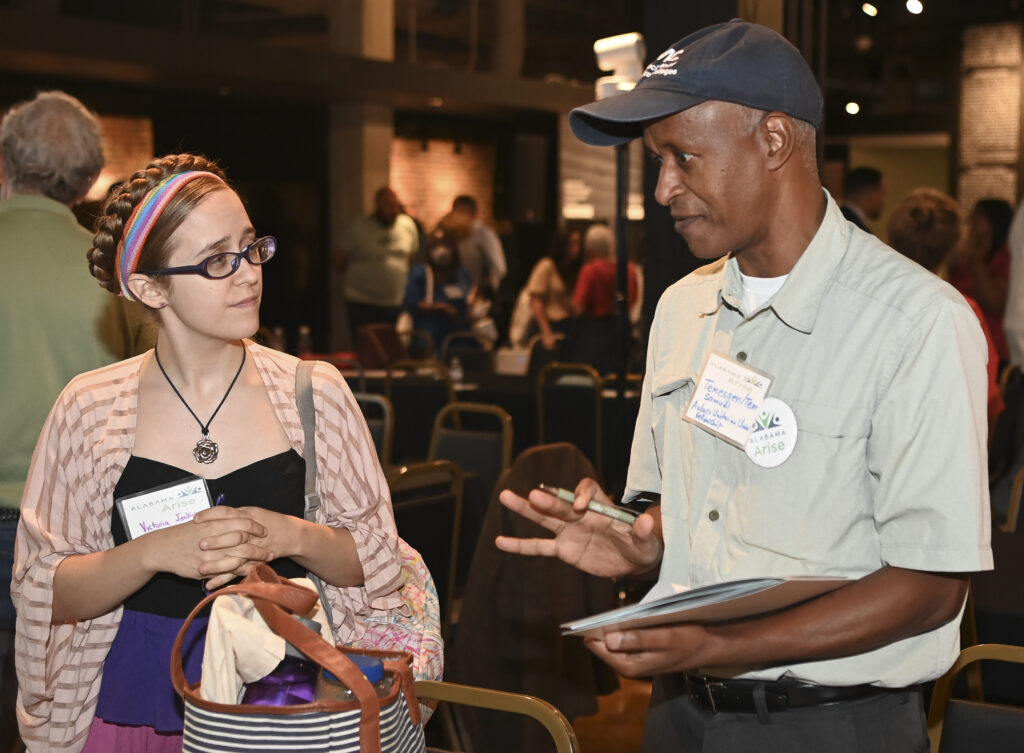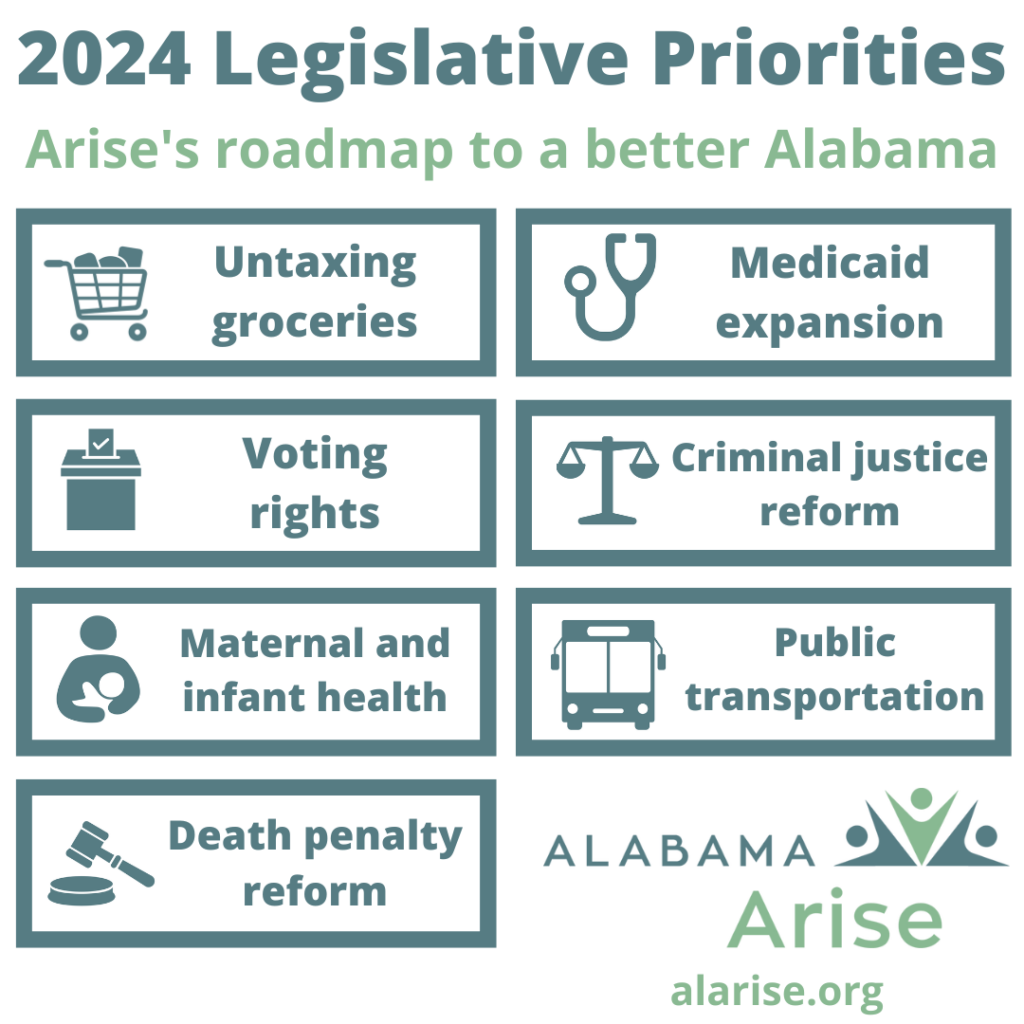Arise’s Akiesha Anderson breaks down a flurry of legislation that kept us busy last week. She discusses bills filed in response to the Alabama Supreme Court’s decision on in vitro fertilization (IVF), updates us on anti-DEI legislation and examines the CHOOSE Act, a bill that would redirect public school funding to private schools and homeschooling. She also previews what’s ahead this week, including committee action on a harmful bill that would impose limits on absentee voting and a good bill that would increase help for those who can’t afford a lawyer when charged with a crime.
Hi there. My name is Akiesha Anderson, and as you know, I am the policy and advocacy director for Alabama Arise. I’m here once again to provide you with another weekly legislative update.
If you by any chance were following what happened at the State House last week, then you, like me, were probably somewhat exhausted if not depleted by the time the week was over. So before I delve into this week’s update, I do want to hold space for that reality and to thank you for all that you do to help to make this state better. Even in response to the tough political terrain that we often find ourselves in, it’s people like you that continue to show up and stay engaged with the political process that help to position us to create that Alabama that we hope to see.
Also, my apologies in advance — I know that these videos typically aren’t very long, but given all that happened last week and what’s slated to come up this week, I do think that I would be doing you a disservice by not talking about each of the things that I’m about to discuss.
Within the first three weeks of the legislative session, we have already seen a host of attacks targeting women’s health; diversity, equity and inclusion; public education funding; people’s rights to free speech and peaceful assembly; protecting our children from child labor and exploitation; and voting rights.
With regard to last week specifically, we started off with news about the Supreme Court ruling that embryos are human — something that has already had significant implications on women like me whose doctors have recommended IVF or other medical procedures in response to complications with conceiving naturally. In response to that decision, however, I am grateful that legislation like HB 225 designed to protect people’s ability to access IVF treatment without fear of prosecution has been filed by House Minority Leader Anthony Daniels.
Also less than ideal last week, we saw SB 129, the anti-diversity, equity and inclusion bill, be quickly introduced and placed on a committee agenda. Basically was heard the next day, within hours of being placed, or within hours of dropping in the Senate. This legislation unfortunately has already passed out of the Senate at an unprecedented speed. If passed into law, this bill would essentially ban diversity, equity and inclusion departments, programs and staff from existing on the campuses of our public institutions, namely colleges and universities. It would also rob many students of color of one of the few safe spaces that we often feel like we have while on the campuses of predominantly white institutions, or PWIs.
Also unfortunate last week, the CHOOSE Act, or HB 129, was voted out of the out of the House Ways and Means Education Committee. While I myself was someone who attended what would be considered a failing or an underperforming school while growing up here in Montgomery, Alabama, and while I definitely understand the desire of parents to have access to quality education, the truth is we cannot as a state ignore the fact that too many students are being failed by the public education system because of the fact that we have failed to properly fund the education system. Meaning our public schools need more, not less, resources in order to give our children the access to quality education that they deserve. Unfortunately, however, the CHOOSE Act, which would possibly help defund public education, is being backed by some powerful representatives and senators, Rep. Garrett in the House and Sen. Orr in the Senate, as well as being backed by Gov. Ivey. Thus it seems slated to be passed out of the House as early as this week.
Last week, we also saw a piece of legislation sponsored by Sen. Orr that would curb people’s ability to protest in residential areas. In particular, this bill would prohibit any protest near the residence of a public official that’s designed to “disturb” that official. Thus, this bill would have drastically undercut the right to protest public officials — and to be clear, all protests by nature are designed to disturb the peace of people in power. The right of Alabamians to make their voices heard is something that has been a bedrock to our democracy and has long been a tool utilized to transform both local and national policies. This right is also something that’s protected by both the First Amendment and the Alabama Constitution. Yet if passed, SB 57 would undermine both of those.
Looking ahead into this coming week, I am happy to report that things aren’t all bleak and grim. While many of the bills I just discussed may continue to move through the legislative process and advance this week, so too may other bills, including some that we are supportive of.
For example, HB 77 by Rep. Rigsby passed out of the House Health Committee last week, as well as the full House last week. Thus, it is positioned to be heard by the Senate at any point. If passed, this newborn screening bill would help advance some of our goals related to our new issue priority surrounding maternal and infant health.
Similarly, related to another new issue priority, HB 32 by Rep. England is slate to be heard in the House Judiciary Committee this Wednesday at 1:30 p.m. While a public hearing has been called on this bill and a vote won’t take place on it until next week, if passed, this bill could bring Alabama in line with the majority of states regarding the way that we apply the felony murder rule. As you may recall, working on this new issue under our criminal justice portfolio was proposed and approved by our Arise members last fall.
And for the sake of brevity, I’ll simply try to name a few other good bills to have on your radar, as they will be in committee this week as well.
SB 35 by Sen. Smitherman would require all history lessons to be fact-based. SB 83, also by Sen. Smitherman, would help more people in need of indigent defense by increasing the compensation that attorneys get for representing clients that need court-appointed counsel. Currently, many attorneys simply can’t justify taking on court-appointed cases given the low rate at which they’re currently compensated for such work. Also, HB 188 by Rep. Collins would create a uniform due process, procedure, standards and rights for schools to follow when taking certain disciplinary actions against students.
Also worth having on your radar, however, are going to be some bills of alarm that will also be in committee this week. Those include SB 1 by Sen. Gudger. If you recall, this is the bill that criminalizes certain forms of helping people with delivering their absentee ballot. This bill will have a public hearing in Room 418 at 9 a.m. on Wednesday, and if you are interested in testifying or being in that room to witness what happens, I definitely encourage you to show up early, because that is a very small room and the seats are limited.
Also, HB 102 by Rep. DuBose, which is a piece of legislation that mirrors Sen. Orr’s legislation that weakens protections against child labor in the state, will be deliberated in a House committee on Wednesday as well.
And honestly, y’all, I know that that is a lot, and it’s probably not as hopeful as we would like it to be. But those are this week’s updates on what happened during the third week of the legislative session and what we’re on the lookout for as we enter into the fourth week of session.
So hopefully the next time I come to you is with a more upbeat update, and just better news regarding what’s happening at the State House. In the meantime, take care, y’all.


